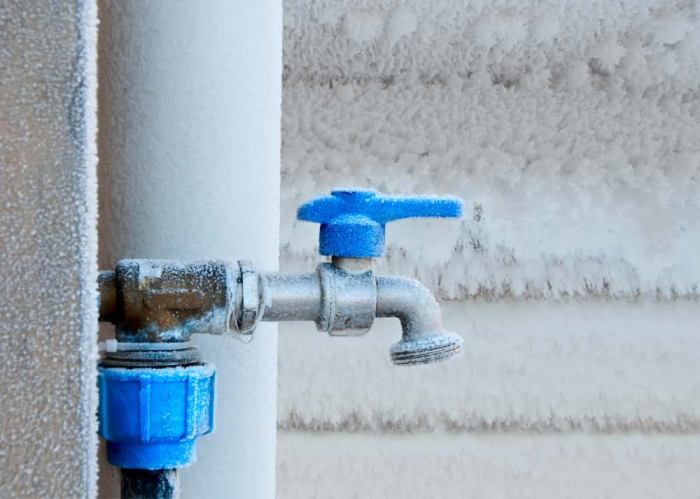Tips for dealing with water damage insurance claims takes center stage, this opening passage beckons readers with semrush author style into a world crafted with good knowledge, ensuring a reading experience that is both absorbing and distinctly original.
As homeowners face the daunting task of navigating through water damage insurance claims, understanding the intricacies of the process can make a significant difference in securing proper coverage and compensation.
Importance of Water Damage Insurance Claims
Filing water damage insurance claims is crucial for homeowners as it provides financial protection in case of unexpected water-related incidents. Without insurance coverage for water damage, homeowners may face significant financial burdens trying to repair or replace damaged property.
Financial Impact of Not Having Insurance Coverage
- Homeowners without insurance coverage for water damage may have to pay out of pocket for repairs, leading to financial strain.
- Not having insurance can result in delayed or incomplete repairs, causing further damage and potentially decreasing the property’s value.
- In extreme cases, homeowners may even face foreclosure if they cannot afford to repair extensive water damage without insurance.
Examples of Situations Where Insurance Claims Helped Homeowners
- After a severe storm caused flooding in a homeowner’s basement, their insurance claim covered the cost of water extraction, drying, and repair, allowing them to restore their property without financial stress.
- When a burst pipe in a kitchen caused extensive water damage to cabinets and flooring, the homeowner’s insurance claim helped cover the costs of repairs and replacements, ensuring their home was restored to its original condition.
- In cases of water damage from a leaking roof, insurance claims can help homeowners repair the roof and any interior damage caused by water infiltration, preventing further structural issues and mold growth.
Understanding Your Insurance Policy

When it comes to dealing with water damage insurance claims, understanding your insurance policy is crucial. Knowing the key components and common terms related to water damage coverage can help maximize your claim and ensure you are properly protected.
Key Components of a Typical Water Damage Insurance Policy
- Property Coverage: This typically includes coverage for the structure of your home and any personal belongings affected by water damage.
- Liability Coverage: This protects you in case someone is injured on your property due to water damage.
- Additional Living Expenses: In the event that your home is uninhabitable due to water damage, this coverage can help with temporary living arrangements.
- Deductible: The amount you are responsible for paying out of pocket before your insurance coverage kicks in.
Common Terms and Clauses Related to Water Damage Coverage, Tips for dealing with water damage insurance claims
- Exclusions: Be aware of any specific instances or circumstances that are not covered by your policy, such as flooding from natural disasters.
- Limits of Coverage: Understand the maximum amount your insurance will pay for water damage claims.
- Preventative Measures: Some policies may require you to take certain precautions to prevent water damage, such as regular maintenance of plumbing systems.
- Claims Process: Familiarize yourself with the steps you need to take to file a water damage claim and what documentation is required.
Tips on How to Interpret and Understand Your Insurance Policy
- Read the Fine Print: Take the time to carefully review your policy document and ask your insurance agent for clarification on any terms you don’t understand.
- Keep Records: Document any correspondence with your insurance company, including phone calls, emails, and letters regarding your water damage claim.
- Seek Professional Help: If you are unsure about the coverage or interpretation of your policy, consider consulting with a public adjuster or legal expert specializing in insurance claims.
- Review Regularly: Periodically review your insurance policy to ensure it still meets your needs and make any necessary updates or adjustments as needed.
Steps to Take When Filing a Water Damage Insurance Claim

When dealing with water damage in your home, it is crucial to follow specific steps to ensure a smooth insurance claim process. Here are the initial steps to take when filing a water damage insurance claim.
Documenting the Damage
Before filing a claim with your insurance company, it is essential to document the extent of the water damage thoroughly. Take photos and videos of the affected areas, including any belongings or furniture that have been damaged. This documentation will serve as crucial evidence when submitting your claim.
- Take clear photos and videos of the water damage.
- Document any valuable items that have been affected.
- Include timestamps on all photos and videos for verification purposes.
Checklist of Information and Documents
When submitting a water damage insurance claim, you will need to provide specific information and documents to support your claim. Here is a checklist of what you may need:
- Your insurance policy information, including policy number and coverage details.
- A detailed description of how the water damage occurred.
- Documentation of the damage, including photos and videos.
- Receipts or estimates for any repairs or restoration work.
- Contact information for any contractors or restoration companies involved.
Dealing with Insurance Adjusters: Tips For Dealing With Water Damage Insurance Claims
:max_bytes(150000):strip_icc()/how-to-handle-water-damage-claims-3860314-FINAL-5ba50164c9e77c0082224c9c.png?w=700)
When dealing with insurance adjusters for water damage claims, effective communication is key to ensuring fair compensation for your damages. Here are some tips to help you navigate this process smoothly.
Tips for Communicating Effectively with Insurance Adjusters
- Be clear and concise in your communication, providing all necessary details about the damage.
- Keep a record of all conversations and correspondence with the adjuster.
- Ask questions if you are unsure about any part of the claims process.
- Stay calm and professional, even if you encounter challenges or discrepancies.
Common Tactics Used by Insurance Companies to Minimize Payouts
Insurance companies may use tactics such as delay tactics, undervaluing damages, and disputing the cause of the damage to minimize payouts.
Guidance on Negotiating with Insurance Adjusters
- Provide evidence to support your claim, such as photos, receipts, and repair estimates.
- Consider hiring a public adjuster to help advocate for you during the negotiation process.
- Be persistent in following up with the adjuster and advocating for fair compensation for your damages.
In conclusion, mastering the art of dealing with water damage insurance claims can empower homeowners to face unexpected challenges with confidence and clarity, ensuring a smoother path towards recovery and restoration.
When it comes to protecting your assets, bundling home and auto insurance can save you money in the long run. By combining both policies, you may be eligible for discounts for bundling home and auto insurance, such as lower premiums or special offers. It’s a smart way to ensure you have the coverage you need while also keeping costs down.
Check out this link for more information on discounts for bundling home and auto insurance.
Personal belongings are often valuable and sentimental, making it crucial to have adequate coverage in case of theft or damage. Homeowners insurance for personal belongings provides the protection you need to replace or repair your items. Make sure you understand what is covered under your policy and consider adding additional coverage if necessary. Learn more about homeowners insurance for personal belongings by clicking on this link.
Curious about how much home insurance will cost you? Use a home insurance cost calculator to get an estimate based on your specific needs and circumstances. Factors such as location, coverage limits, and the value of your home can all affect the cost of your insurance policy. By using a home insurance cost calculator, you can make informed decisions about your coverage options.
Explore more about home insurance cost calculators through this link.




